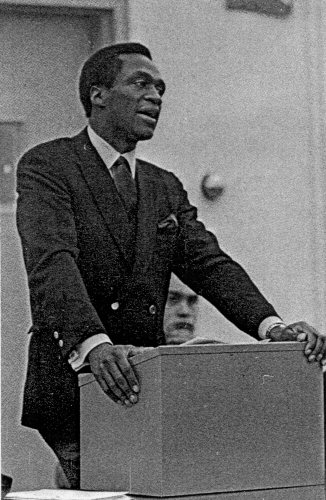James L. Walton is Tacoma, Washington’s first black city manager. Born in Dallas, the youngest of five children, he grew up in the small Texas town of Mineola. After high school graduation in 1959, he followed his brother, Willie Brown, who would become a prominent California politician, in moving to California. He lived in San Diego, where he attended community college, then served two tours of duty in the Army during the Vietnam War, concluding his military service at Fort Lewis, Washington. The assassination of Martin Luther King, Jr., redirected his resolve. In 1968 he enrolled at Tacoma Community College, where he became president of the Obi Society, the black student union, whose members fought an entrenched status quo for an education equal to that offered white students.
Two incidents in May 1969 defined Walton’s leadership style. A show-down between white and black students at Tacoma Community College escalated to violence. Walton was saved from a mob beating by two faculty advisers who intervened when the police did not. “What we were about was inclusion,” says Walton. “It wasn’t about destroying the campus . . . It was a conservative approach because we wanted to be system players.” Later in the month, in what was to be known as the Mother’s Day Disturbance, violence broke out in the Hilltop neighborhood, home to most of Tacoma’s black population. Walton, the youngest of several black leaders from the area, helped quell the outbreak and win concessions from the City Council. From that group of leaders grew the Black Collective, formed to address issues of concern to the black community. Walton continues to help lead the Collective today.
In 1970 James Walton entered public service when Tacoma’s new city manager, Bill Donaldson, persuaded him to accept the position of director of the city’s Human Relations Department. The appointment was challenging. Walton had long considered government the “enemy,” more likely to counter rather than advance black interests. He also knew that many members of the police force viewed him as a radical. Nonetheless he took the job and soon became recognized for his integrity and deliberation. In 1977 Walton became assistant city manager under manager Erling Mork, and in 1990 was promoted to deputy city manager. He was appointed city manager in 2003 and retired in 2005.

